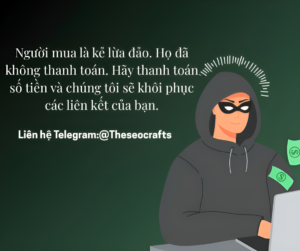Online Gaming and the Expansion of Multiplayer Culture
Online gaming has grown from a simple pastime into a global cultural phenomenon, changing the way millions of people interact, compete, and experience entertainment. With the rise of the internet, gaming has transcended physical boundaries, creating virtual spaces where players can connect and engage with others from every corner of the world. What 79king was once a hobby reserved for dedicated players has now become a mainstream activity enjoyed by people of all ages, backgrounds, and skill levels. As technology continues to evolve, the world of online gaming has expanded into an industry worth billions of dollars, shaping the future of entertainment and digital social interaction.
The appeal of online gaming lies in 79king.com its ability to connect players. In the past, gaming was often an isolated experience, where players either played solo or gathered in person to enjoy multiplayer games. The internet revolutionized this by allowing players to connect in real-time with others, regardless of location. Whether it’s a team-based strategy game, an action-packed shooter, or a massive online role-playing game, online gaming fosters a sense of community where individuals can come together to form lasting friendships or challenge each other in fierce competition. This connectivity has expanded the global gaming culture, enabling individuals from different countries and cultures to unite under a shared interest.
The accessibility of online gaming has also played a key role in its rapid growth. Digital distribution platforms such as Steam, PlayStation Network, and Xbox Live have made it easier than ever for players to access a wide range of games, download them instantly, and play with others online. Mobile gaming has further increased accessibility, bringing gaming experiences to smartphones and tablets, allowing people to enjoy games on the go. These advances have made gaming more accessible to a wider audience, and the convenience of digital downloads has replaced the need for physical copies, making it easier for players to explore a vast array of genres.
Additionally, online gaming has given rise to the phenomenon of esports. Competitive gaming, once a niche activity, has transformed into a global industry, with professional players and teams competing in high-stakes tournaments that attract millions of viewers. Esports events, such as those for games like League of Legends, Dota 2, and Fortnite, have become mainstream spectacles, drawing attention from both gamers and non-gamers alike. These tournaments offer substantial prize pools, sponsorships, and media coverage, turning esports into a legitimate career for many players. The rise of streaming platforms like Twitch and YouTube Gaming has further cemented esports as a cultural force, where fans can watch live streams, engage with players, and even support their favorite teams and personalities.
Despite its many benefits, online gaming does present challenges. One of the most notable concerns is addiction, as games are often designed to be highly engaging and rewarding. Some players may find themselves spending excessive amounts of time in front of screens, neglecting real-world responsibilities. Moreover, online gaming communities can sometimes be toxic, with players encountering harassment, cyberbullying, or cheating. Developers have made efforts to mitigate these issues by introducing better moderation systems and enforcing stricter community guidelines, but they remain persistent challenges that continue to shape the online gaming environment.
In conclusion, online gaming has had a profound impact on entertainment and society. Its ability to connect people across the globe, its accessibility, and the rise of competitive gaming have made it a major force in modern culture. While there are challenges to address, the evolution of online gaming continues to shape how people experience leisure and interaction in the digital age. With advancements in technology, the future of online gaming looks promising, offering new ways to connect, compete, and immerse oneself in virtual worlds.…

 Games, whether digital or analog, have always held a unique place in human culture. From ancient board games like Senet to modern video games like Minecraft, these interactive experiences have captivated players of all ages and backgrounds. However, beyond mere entertainment, games possess a remarkable ability to educate, inspire, and even transform lives.
Games, whether digital or analog, have always held a unique place in human culture. From ancient board games like Senet to modern video games like Minecraft, these interactive experiences have captivated players of all ages and backgrounds. However, beyond mere entertainment, games possess a remarkable ability to educate, inspire, and even transform lives. Online gaming has become one of the most popular forms of entertainment worldwide, attracting millions of players every day. With advancements in internet technology and digital devices, gaming has evolved from simple offline experiences to complex online environments where players can interact, compete, and collaborate in real time.
Online gaming has become one of the most popular forms of entertainment worldwide, attracting millions of players every day. With advancements in internet technology and digital devices, gaming has evolved from simple offline experiences to complex online environments where players can interact, compete, and collaborate in real time. In recent years, eSports has evolved from a niche hobby to a multi-billion-dollar industry that has captivated millions of viewers worldwide. Competitive gaming, also known as eSports, involves professional players and teams competing in video game tournaments for cash prizes, fame, and sponsorships. What started as small, local LAN (local area network) events has blossomed into a global phenomenon, attracting massive audiences, lucrative sponsorship deals, and mainstream recognition. This growth of eSports has not only transformed how people view video games but also how they interact with them, blurring the line between gaming and professional sports.
In recent years, eSports has evolved from a niche hobby to a multi-billion-dollar industry that has captivated millions of viewers worldwide. Competitive gaming, also known as eSports, involves professional players and teams competing in video game tournaments for cash prizes, fame, and sponsorships. What started as small, local LAN (local area network) events has blossomed into a global phenomenon, attracting massive audiences, lucrative sponsorship deals, and mainstream recognition. This growth of eSports has not only transformed how people view video games but also how they interact with them, blurring the line between gaming and professional sports. The gaming industry has experienced a remarkable evolution over the years, transforming from a simple form of recreation into a global phenomenon that shapes entertainment, technology, and culture. From the early days of arcade games to the rise of modern consoles and mobile gaming, the journey of gaming has been marked by innovation, creativity, and a constant push for advancement. This article explores the evolution of gaming and its impact on society.
The gaming industry has experienced a remarkable evolution over the years, transforming from a simple form of recreation into a global phenomenon that shapes entertainment, technology, and culture. From the early days of arcade games to the rise of modern consoles and mobile gaming, the journey of gaming has been marked by innovation, creativity, and a constant push for advancement. This article explores the evolution of gaming and its impact on society. Games, in their various forms, have woven themselves into the fabric of human culture, transcending boundaries of age, gender, and geography. From ancient board games to modern video games, the evolution of gaming reflects our innate desire for entertainment, challenge, and social interaction. In this article, we delve into the diverse world of games, examining their historical evolution, cultural significance, and societal impact.
Games, in their various forms, have woven themselves into the fabric of human culture, transcending boundaries of age, gender, and geography. From ancient board games to modern video games, the evolution of gaming reflects our innate desire for entertainment, challenge, and social interaction. In this article, we delve into the diverse world of games, examining their historical evolution, cultural significance, and societal impact. Online gaming has become one of the most influential forms of entertainment in the digital age. Once a niche activity limited to small communities of enthusiasts, online gaming has evolved into a global phenomenon, bringing together millions of players from around the world. Its growth has been driven by advancements in technology, including faster internet connections, powerful gaming consoles, and the widespread availability of mobile devices. These developments have made online gaming more accessible and enjoyable for players of all ages and backgrounds.
Online gaming has become one of the most influential forms of entertainment in the digital age. Once a niche activity limited to small communities of enthusiasts, online gaming has evolved into a global phenomenon, bringing together millions of players from around the world. Its growth has been driven by advancements in technology, including faster internet connections, powerful gaming consoles, and the widespread availability of mobile devices. These developments have made online gaming more accessible and enjoyable for players of all ages and backgrounds. Online gaming has rapidly become a significant part of modern culture, transforming the entertainment landscape and changing how people engage with video games. Over the past few decades, gaming has evolved from a niche hobby into a global phenomenon that touches millions of people worldwide. The introduction of high-speed internet, more powerful gaming consoles, and mobile devices has made online gaming more accessible than ever before, allowing players to connect with one another across vast distances. This accessibility has not only expanded the reach of online gaming but has also turned it into a social activity where people from all corners of the world can come together and interact in virtual environments.
Online gaming has rapidly become a significant part of modern culture, transforming the entertainment landscape and changing how people engage with video games. Over the past few decades, gaming has evolved from a niche hobby into a global phenomenon that touches millions of people worldwide. The introduction of high-speed internet, more powerful gaming consoles, and mobile devices has made online gaming more accessible than ever before, allowing players to connect with one another across vast distances. This accessibility has not only expanded the reach of online gaming but has also turned it into a social activity where people from all corners of the world can come together and interact in virtual environments.



 Online gaming, once a niche hobby, has evolved into a global cultural phenomenon that is reshaping how individuals engage with entertainment in the digital age. Beyond mere leisure, online gaming has become a dynamic platform that facilitates social connection, competition, and a continuous influx of technological innovations.
Online gaming, once a niche hobby, has evolved into a global cultural phenomenon that is reshaping how individuals engage with entertainment in the digital age. Beyond mere leisure, online gaming has become a dynamic platform that facilitates social connection, competition, and a continuous influx of technological innovations.



